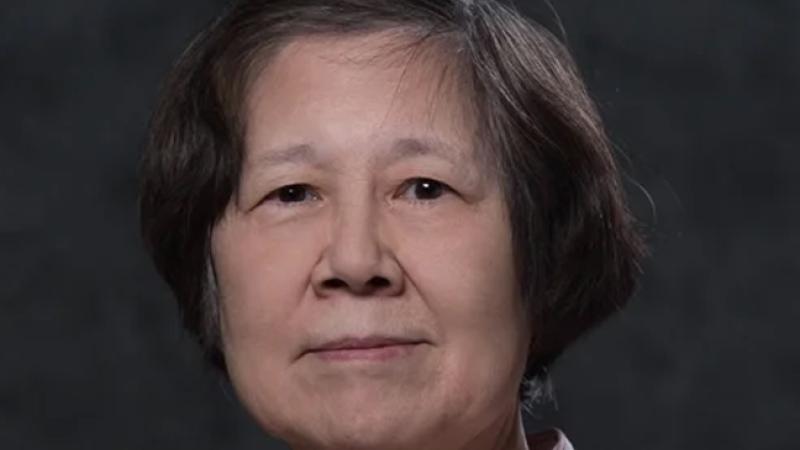Gwo-Ching Wang wins Davisson-Germer Prize
November 1, 2024

Rensselaer Polytechnic Institute’s Gwo-Ching Wang, Ph.D., Travelstead Institute Chair, is the 2025 recipient of the Davisson-Germer Prize in Atomic or Surface Physics from the American Physical Society (APS). Wang is being honored for “pioneering contributions to the development and use of electron diffraction techniques to study surfaces, growth-front ordering, and two-dimensional materials.”
“It is an honor for my research to be recognized with this prize from the American Physical Society,” said Wang.
In her work, Wang uses state-of-the-art surface sensitive techniques to determine the growth, characterization, and physics of 2D materials, ultrathin films, and nanostructures. She also uses reflection high-energy electron diffraction (RHEED) to characterize textures evolution in thin films and nanostructures, and azimuthal RHEED for the mapping of structures and perfection of wafer-scale graphene, 2D materials, ultrathin films, and heterostructures. Azimuthal RHEED is a technique that rotates the azimuthal angle of a sample under a glancing incident electron beam to measure a large volume reciprocal space structure that reveals the surface structure of a sample over a large area in real space.
Wang’s recent research focuses on layered magnetic quantum materials with Curie temperature above room temperature for spintronic applications, alternative metallic materials beyond copper for CHIPS interconnects, and emerging energy materials for high-efficiency and flexible solar cells. In the near future, her lab will be working with collaborators on the study of heteroepitaxial layered materials on compound semiconductors for optoelectronic applications by optimizing film growth conditions and interface quality, identifying any key performance limitations and key areas of improvement.
A native of China who grew up in Taiwan, Wang joined Rensselaer’s Physics Department as an associate professor in 1984, after working for four years at Oak Ridge National Laboratory in Tennessee as a staff scientist in the solid-state physics division and two years prior at NBS (now NIST). Wang earned her bachelor’s degree in physics from Cheng‐Kung University, Taiwan, her master’s degree in physics from Northern Illinois University, and her doctorate in surface physics from the University of Wisconsin‐Madison.
Her recognitions include fellowships of APS, American Vacuum Society, Materials Research Society, and the American Association for the Advancement of Science.